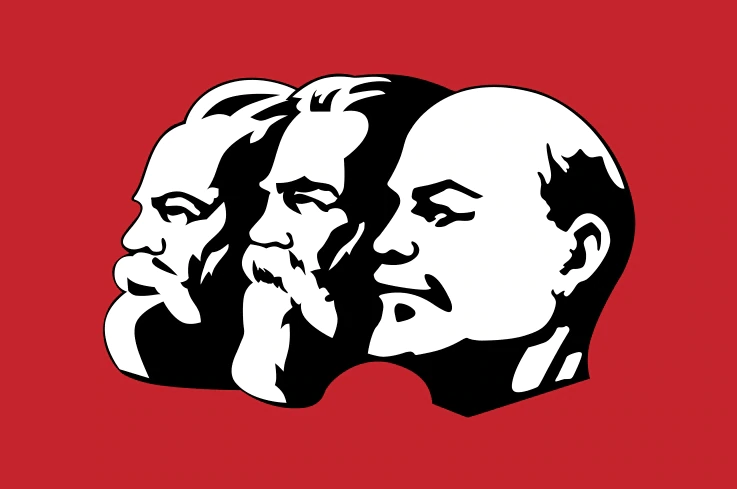ProleWiki:Main page/Featured/Marxism: Difference between revisions
More languages
More actions
m (New Featured for Lenin) Tag: Visual edit |
m (Changed featured article.) |
||
| Line 1: | Line 1: | ||
[[File: | [[File:Marxism-leninism symbol.png|left|frameless|275x275px]] | ||
''' | '''Marxism-Leninism'''is an ideological framework that originated in the application of [[Marxism|Marxist]] theory to revolutionary practice by [[Vladimir Lenin]] and the [[Communist Party of the Soviet Union]]. It is based on [[Dialectical Materialism]], the materialist conception of history, and Marxist political economy including the Leninist conception of [[imperialism]]. | ||
After the success of the Russian revolution in 1917 and the establishment of the [[Soviet Union]] in 1922, many communist parties around the world began to adopt Marxism-Leninism as their political line, and Marxism-Leninism was the main theoretical framework which guided the Korean, Vietnamese, and Chinese revolutions as well as other successful national liberation and revolutionary movements in Africa and Asia. | |||
Today, Marxism–Leninism is one of the theoretical foundations of governing communist parties in [[China]], [[Cuba]], [[DPRK|Korea]], [[Laos]] and [[Vietnam]], and is the political line of many communist parties waging class struggle. .{{Align|right|[[Marxism-Leninism|''Read further...'']]}} | |||
Revision as of 02:54, 3 August 2022

Marxism-Leninismis an ideological framework that originated in the application of Marxist theory to revolutionary practice by Vladimir Lenin and the Communist Party of the Soviet Union. It is based on Dialectical Materialism, the materialist conception of history, and Marxist political economy including the Leninist conception of imperialism.
After the success of the Russian revolution in 1917 and the establishment of the Soviet Union in 1922, many communist parties around the world began to adopt Marxism-Leninism as their political line, and Marxism-Leninism was the main theoretical framework which guided the Korean, Vietnamese, and Chinese revolutions as well as other successful national liberation and revolutionary movements in Africa and Asia.
Today, Marxism–Leninism is one of the theoretical foundations of governing communist parties in China, Cuba, Korea, Laos and Vietnam, and is the political line of many communist parties waging class struggle. .
